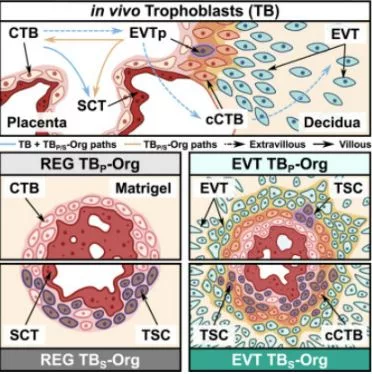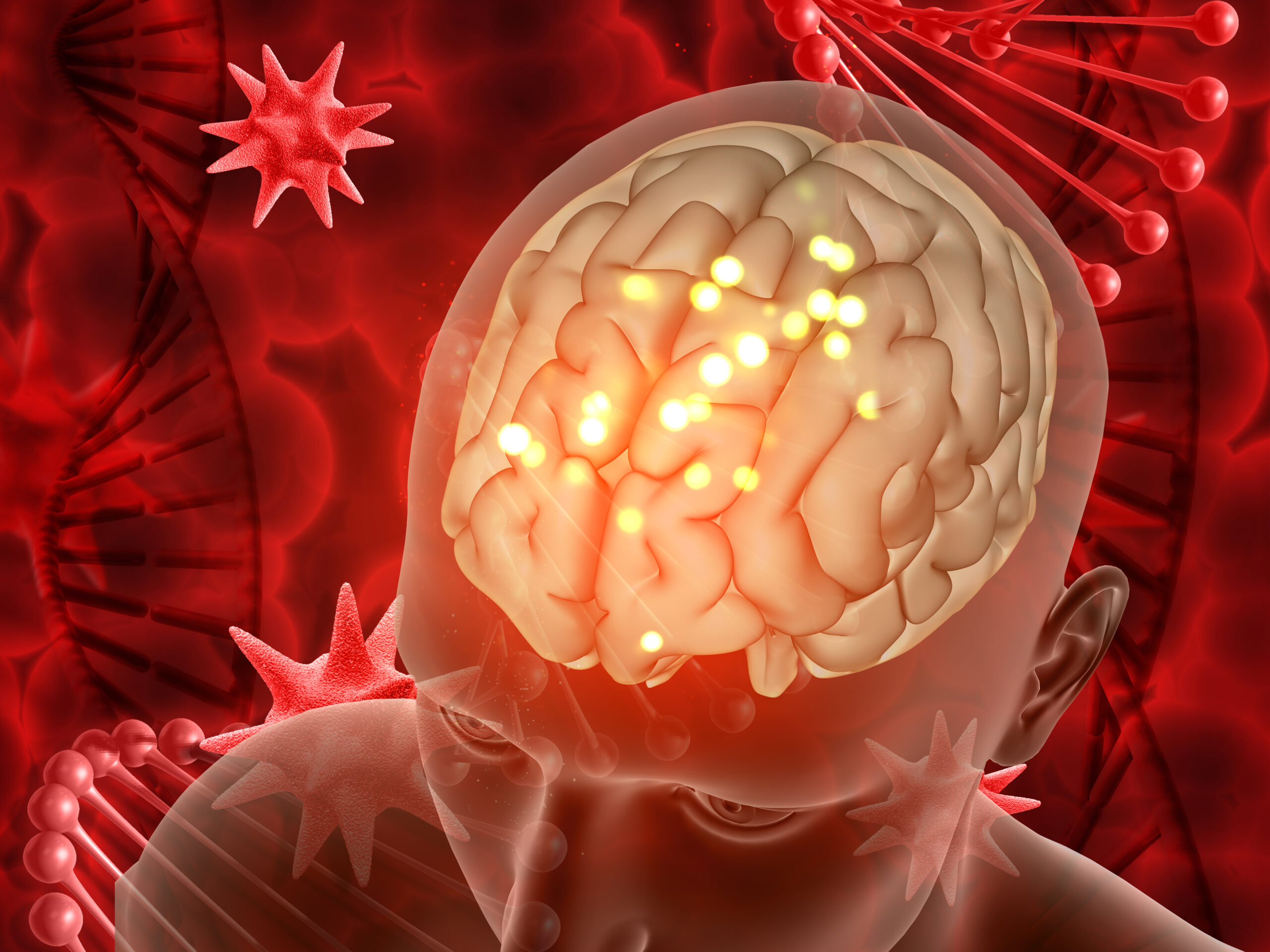The research explores the efficacy of human trophoblast stem cells (hTSCs) and associated trophoblast organoids as advanced culture systems for investigating trophoblast development and placentation in humans. Through single-cell transcriptomics, the study assesses how organoids, derived from freshly isolated first-trimester trophoblasts or established hTSC cell lines, replicate developmental cell trajectories and transcriptional regulatory processes observed in vivo. While both primary trophoblast-derived organoids and hTSC-derived organoids generally replicate trophoblast differentiation accurately, discrepancies exist in specific aspects such as trophoblast composition, differentiation, and transcriptional regulation. Notably, hTSC-derived organoids exhibit an expanded progenitor state not prominent in vivo, demonstrating characteristics of both villous cytotrophoblasts and extravillous trophoblasts. This research serves as a comprehensive assessment, outlining the strengths and limitations of current trophoblast organoid platforms.
Keywords: Organoids, stem cell, trophoblast development





